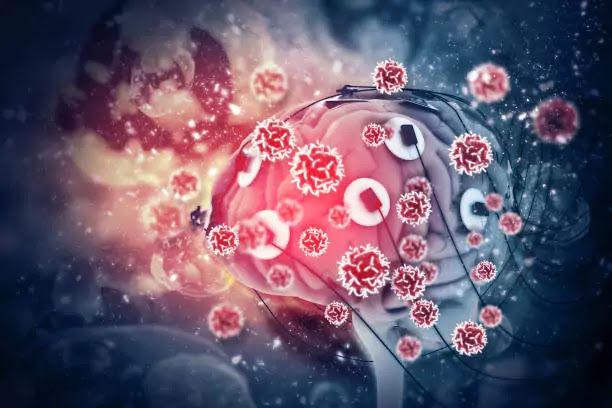 |
As each week passes, it is becoming more and more clear that coronavirus can trigger a huge range of nerve-based problems. The disease caused by the new coronavirus, is mostly a breathing and lung related illness that affects the lungs, but neuroscientists and specialist brain doctors say newly appearing evidence of its impact on the brain is concerning.
As we all know that the coronavirus targets the lungs, kidneys, liver and blood vessels. Still, about half of patients report nerve-based signs of sickness, including headaches, confusion and delirium, suggesting the virus may also attack the brain.
The new study offers the first clear evidence on how the coronavirus invades brain cells, hijacking them to make copies of itself and sucks up all of the oxygen nearby, starve neighboring cells to death.
The study was posted online last week but has not yet been vetted by experts for publication.
“If the brain does become infected, it could have a lethal consequence,” said Akiko Iwasaki, an immunologist at Yale University.
It's muddled how the infection gets to the brain or how frequently it sets off this path of devastation. Contamination of the brain is probably going to be uncommon, yet a few people might be vulnerable due to their hereditary foundations, a high popular burden or different reasons.
In the new investigation, Dr. Iwasaki and her associates archived brain disease in three different ways: in brain tissue from a person who died of corona virus, in a mouse model and in organoids— clusters of brain cells in a lab dish meant to mirror the brain’s three-dimensional structure.
Different microorganisms — including the Zika infection — are known to taint synapses. Resistant cells at that point flood the harmed locales, attempting to purge the brain by wrecking contaminated cells.
“It’s kind of a silent infection. This virus has a lot of evasion mechanisms,” Dr Akiko Iwasaki, a lead researcher at the Yale University, told The New York Times.
When the corona virus is foul in the body, a protein named ACE2 contaminates the cell. ACE2 acts as the receptor for the coronavirus and allows it to infect the cell. ACE2 protein become frequently multiplied, causing all cells to be infected. Experts say that these virus have less effect in the brain because ACE2 protein is very less in the brain. But Dr. Iwasaki and her colleagues looked more closely and found that the virus could indeed enter brain cells using this doorway.
The coronavirus seems to rapidly decrease the number of synapses, the connections between neurons. In the nervous system, a synapse is a structure that permits a neuron to pass an electrical or chemical signal to another neuron or to the target effector cell. This means that the coronavirus blocks the brain signal.
Her team then looked at two sets of mice — one with the ACE2 receptor expressed only in the brain, and the other with the receptor only in the lungs. When researchers introduced the virus into these mice, the brain-infected mice rapidly lost weight and died within six days. The lung-infected mice did neither.
The virus may get to the brain through the olfactory bulb, which is a neural structure of the vertebrate forebrain involved in olfaction, the sense of smell. It’s unclear which route the pathogen is taking, and whether it does so often enough to explain the symptoms seen in people.
Forty percent to 60 percent of hospitalized Covid-19 patients experience neurological and psychiatric symptoms, said Dr. Robert Stevens, a neurologist at Johns Hopkins University. The results still suggest that virus infection in the brain may be more lethal than respiratory infection, Dr. Iwasaki said.
0 comments:
Post a Comment